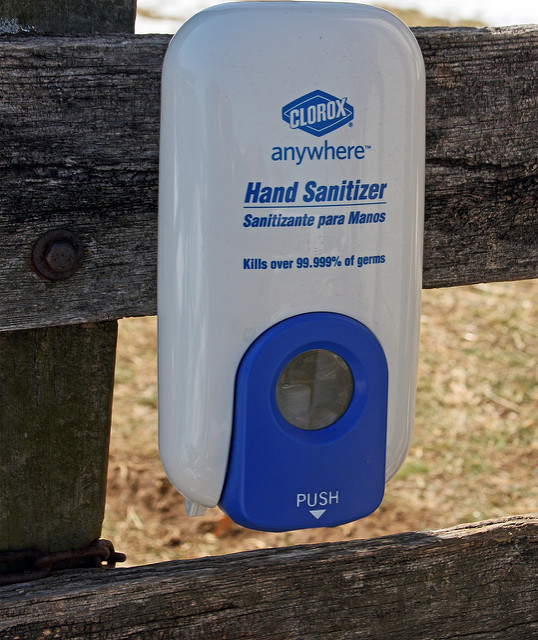While soap is a relatively accessible commodity in most developed countries, there are still about 4 billion people around the world, including in the United States, who do not have access to sanitary hand washing facilities or are uninformed about proper hygiene. Often, the lack of sanitation leads to many issues including infant mortality due to an underdeveloped immune system as well as illnesses ranging from influenza to dysentery and Hepatitis A. An alternative form of hand sanitation is hand sanitizer. Many people use hand sanitizer before eating or after answering the call of nature while backpacking, but how effective is it?
There are two general categories of hand sanitizers: alcohol-based and non-alcohol based. Alcohol-based hand sanitizers include ethanol or isopropanol. Non-alcohol based sanitizers include the use of compounds such as quaternary ammonium compounds or triclosan. Quaternary ammonium compounds have been found to be ineffective against certain types of bacteria, including methicillin-resistant Staphylococcus aureus (MRSA), an antibiotic resistant bacteria. Furthermore, studies have found that triclosan is ineffective and can contribute to antibiotic resistance.
Image Source: Fertnig
The Center for Disease Control and Prevention (CDC) recommends the use of sanitizers with an alcohol concentration between 60–95% because these concentrations have been found to be the most effective at killing germs, which may include bacteria, fungus, and some viruses. In general, alcohols work by breaking down the cellular membrane and the proteins of an infectious organism, but they are unable to kill certain bacterial spores and enveloped viruses. The efficacy of alcohol-based hand sanitizer is reduced when hands have become greasy or soiled and it has been found that alcohol-based hand sanitizers are not effective at removing harmful chemicals.
The use of alcohol-based hand sanitizer on your skin is not dangerous, but it could potentially cause hand dermatitis due to the tremendous drying effect it has on the skin if overly used. Moreover, additional studies have shown that fragrances added to hand sanitizer might contain phthalates, which could result in birth defects. There have also been frequent occurrences of ingestion or improper use of alcohol-based hand sanitizers, especially in children, which can lead to health risks such as the inability to breathe and coma in young children. Because of some of these potential negative effects, hand-washing with soap and water is always recommended before alternatives like hand sanitizers are used. However, when hand-washing with soap and water is not available, non-scented alcohol-based hand sanitizers have been found to be an effective way to kill most germs.
Feature Image Source: Susan S.










